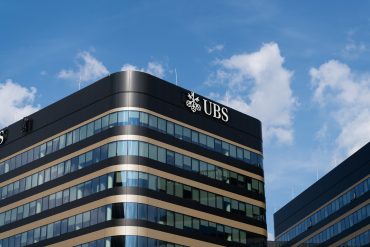
- Earnings Season
- Global Markets
- Wealth Management
UBS Doubles Quarterly Profit to $2.4 Billion, Beats Expectations
5 minute read

Global banking leader UBS accelerates Credit Suisse integration while wealth management division drives record quarterly earnings
Key Takeaways
- UBS doubles Q2 net profit to $2.4 billion, surpassing analyst expectations of $1.9 billion as investment banking and wealth management divisions drive strong performance amid market volatility.
- Credit Suisse integration reaches 70% completion with $9.1 billion in cumulative cost savings achieved and one-third of Swiss client accounts successfully migrated.
- Global Wealth Management profit surges 24% year-over-year to $1.44 billion, supported by 11% growth in transaction-based income and invested assets reaching $4.51 trillion.
Introduction
UBS delivers a standout performance with second-quarter net profit doubling to $2.4 billion, significantly exceeding market expectations and demonstrating the Swiss banking giant’s successful navigation of volatile market conditions. The results showcase strong momentum across core divisions while highlighting substantial progress in integrating Credit Suisse operations.
The profit surge represents a dramatic improvement from $1.136 billion in the same period last year, beating analyst forecasts by over 25%. This outperformance positions UBS as a clear winner among global banking peers during a challenging quarter marked by geopolitical uncertainty and market turbulence.
Key Developments
UBS reported net profit attributable to shareholders of $2.4 billion for the second quarter, building on the $1.7 billion achieved in Q1 2025. The results, announced on July 30, reflect both operational strength and one-time benefits including a $427 million net release of provisions related to Credit Suisse litigation resolution.
Total revenues reached $12.112 billion, slightly below the anticipated $12.45 billion, while profit before tax climbed to $2.7 billion. The bank achieved an underlying return on CET1 capital of 15.3% and maintained a strong capital position with a CET1 ratio of 14.4%.
The Credit Suisse integration continues to advance on schedule, with one-third of Swiss client accounts successfully migrated and cumulative cost reductions reaching $9.1 billion. UBS expects to complete the remaining account migrations by the end of Q1 2026.
Market Impact
UBS shares trade near $13.25 in recent sessions, showing resilience despite ongoing market volatility. The bank’s return on tangible equity improved to 11.8% from 8.5% in the first quarter, while tangible book value per share increased to $25.95, representing 9% year-over-year growth.
Investment banking divisions across major banks benefited from increased market activity, with UBS’s global markets revenues surging 25% during the quarter. This performance aligns with strong results from Bank of America, JPMorgan Chase, and Morgan Stanley, contrasting sharply with HSBC’s 26% decline in first-half pretax profit.
Trading revenue climbed as equity and fixed income market volatility drove investor portfolio adjustments, boosting demand for advisory services. According to CNBC, this increased activity stems partly from geopolitical events including trade policy uncertainties.
Strategic Insights
UBS’s wealth management division emerges as the standout performer, with Global Wealth Management profit before tax increasing 24% year-over-year to $1.44 billion. The division benefits from an 8% increase in recurring net fee income and 11% growth in transaction-based income, demonstrating the value of scale in wealth services.
The bank maintains invested assets of $4.51 trillion, up 12% year-over-year and 7% quarter-over-quarter. Strategic partnerships, including a new collaboration with 360 ONE in India, reflect UBS’s expansion into high-growth markets through technology-enabled platforms.
UBS invests heavily in digital infrastructure, deploying 50,000 Microsoft Copilot licenses and achieving 75% cloud adoption across workloads. These technology investments position the bank to leverage AI capabilities while managing the complex Credit Suisse integration.
Expert Opinions and Data
CEO Sergio Ermotti notes that while equity markets have risen 30% since April, activity levels show a “wait-and-see attitude among investors and corporates.” He tells CNBC that UBS sees high readiness among investors to deploy capital as confidence around the macro outlook strengthens.
Citi analysts observe that although net interest income appears stabilized, UBS’s capital return plans remain unchanged amid ongoing discussions regarding Swiss capital proposals. The bank faces potential requirements to hold an additional $26 billion in capital, which Ermotti describes as an “extreme increase.”
Net interest income stood at $1.965 billion despite prior guidance indicating a decline. For the third quarter, UBS anticipates stable NII in Swiss francs, translating to a low single-digit percentage increase in US dollars as integration expenses remain well-managed.
Conclusion
UBS demonstrates exceptional execution across its core businesses while successfully managing the complex Credit Suisse integration. The bank remains on track to meet its 2026 targets, including an underlying return on CET1 capital of approximately 15% and a cost/income ratio of 70%.
With $6.6 trillion in invested assets and strong client momentum, UBS maintains its commitment to returning capital to shareholders through ongoing share buybacks totaling $3 billion annually and planned dividend increases of approximately 10% year-over-year. The bank’s strong capital position and operational progress position it favorably despite regulatory uncertainties in Switzerland.








